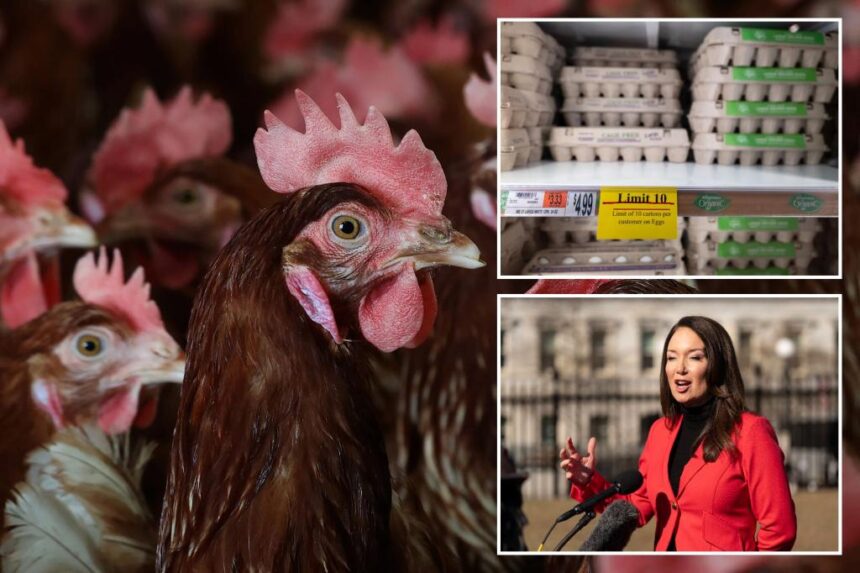The Trump administration is taking steps to combat the record-high prices of eggs, which are predicted to increase by more than 40% in 2025. Agriculture Secretary Brooke Rollins revealed details of the plan, which includes investing an additional $1 billion to battle bird flu on top of the $2 billion already spent since the outbreak began in 2022.
Biosecurity measures on farms will be tightened to prevent the spread of the virus, although the challenge lies in wild birds spreading the virus as they migrate past farms. Egg and poultry farmers have been implementing measures to protect their birds, such as requiring workers to change clothes and sanitize vehicles entering farms.
The surge in egg prices is a result of more than 166 million birds, mainly egg-laying chickens, being slaughtered to contain the virus. Last month alone, nearly 19 million egg-laying chickens were culled. The USDA predicts a further 41% increase in egg prices this year, costing consumers at least $1.4 billion.
Despite the efforts to combat bird flu, consumers may not see an immediate effect at the checkout counter as it takes time for infected farms to dispose of carcasses, sanitize their farms, and raise new birds. Rollins expressed optimism that the plan will eventually help stabilize prices, possibly by the summer.
The USDA plans to allocate $500 million to help farmers enhance biosecurity measures, $400 million in aid for affected farmers, and $100 million for research on vaccines and therapeutics for US chicken flocks. The administration is also considering importing eggs from other countries, although it may not significantly impact the market given the large number of eggs produced domestically.
While vaccines could potentially reduce the need for mass culling of birds during outbreaks, no approved vaccines are currently available. The National Turkey Federation supports the plan to stabilize the market but urges the USDA to consider all egg and poultry farmers, not just egg producers.








